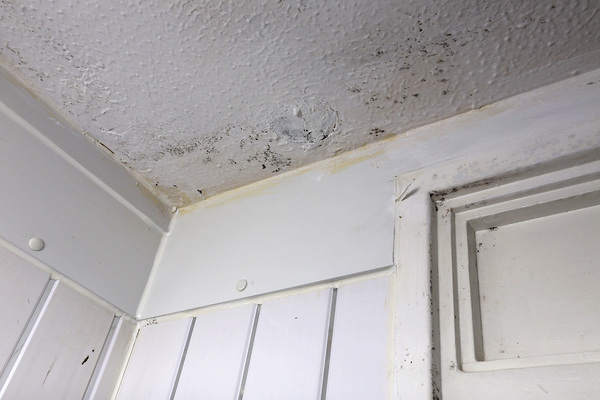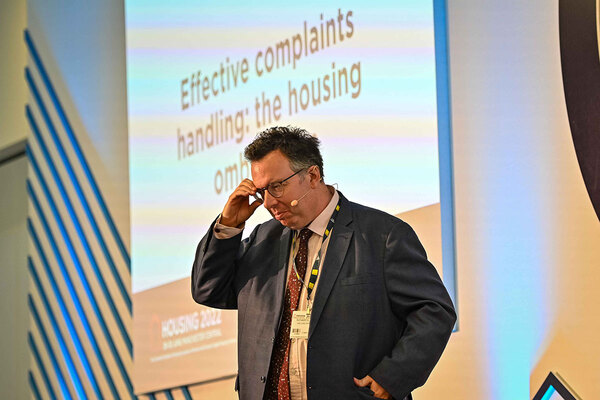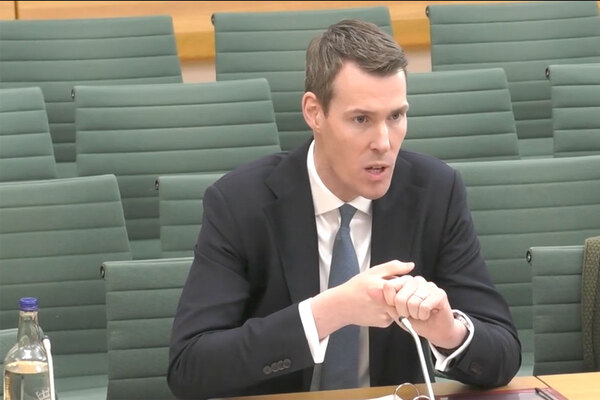Understanding complaints can be key to a merger’s success
Mergers between social landlords are likely to increase. Richard Blakeway looks at how complaints can provide organisations with a window into whether their merger partner is compatible, and also addresses how landlords should be on the look-out for complaints rising after such a big organisational change
I was asked a provocative question by a chief executive the other day: will the social housing sector become dominated by a handful of major providers like the energy market? Unquestionably, there are likely to be fewer housing providers by 2030, given the financial pressures and competing demands on landlords.
If this is to be the direction of travel, what role can complaints perform to make mergers a success? How can they help address the challenges we sometimes see and guide the strategy on services and investment into existing homes, showing the difference this vital and important sector can make.
Complaints provide two areas of focus.
“Landlords can extract considerable insight from complaints on whether procedures are supporting the right behaviours, internal communication and collaboration”
The first is culture. Culture can sound euphemistic, but is frequently cited when mergers are aborted. Nor does a merger completing mean an integrated culture can be taken for granted.
Complaints are a window into the organisation’s culture because culture is about people and behaviours, as are complaints. Successful organisational culture is about more than a list of values, it is about a system which connects policies, processes and practices. Each is a test of whether there is maladministration or not. Therefore, landlords can extract considerable insight from complaints on whether procedures are supporting the right behaviours, internal communication and collaboration, identify if there are unexpected practices or training needs, and so much more. If a new policy or process is introduced during or after merger, it can be an early indicator of success, or issues.
Furthermore, complaints can reveal gaps in organisational knowledge and information management and how those records or systems need to be improved during an organisational restructure.
Achieving this may require the complaints team to be reimagined, more resourced and skilled up, and this could feature more strongly in the sector’s due diligence for mergers. If each party did a cultural assessment of complaints, what would it tell you?
Whether complaints are used in this way is dependent on leaders proactively joining the dots and avoiding language which treats complaints only as transactions, or cases as isolated or historic.
“I cannot think of an example where structural change happens without maladministration increasing”
Crucially, our deep dives into individual landlords through Paragraph 49 of the Housing Ombudsman Scheme has frequently involved bodies that have merged, are in the process of doing so, or councils closing their arm’s-length body. There are rich lessons in these reports as some landlords embark on the journey.
The second issue is maintaining effective complaint handling during the transition itself. I cannot think of an example where structural change happens without maladministration increasing. Sometimes we see a sharp increase in a short period, and a longer recovery. In one instance, within a year we saw maladministration go from the national average to four out of five findings.
Given the organisational stress and uncertainty for employees, how can this be mitigated better? The Complaint Handling Code – a statutory duty from April – and revised self-assessment can support landlords to plan. The code should help landlords provide the most positive and effective complaints procedure of any sector. It allows different models, while promoting clarity and consistency of outcomes for residents. In a merger, it may be important to look beyond the headline performance of one team when identifying the right approach. Without this thought to approach, issues can persist. I am still seeing merged organisations long after we raised concerns about their approach to say, informal and formal complaint handling, devising the model.
Essential is a deep understanding of the common causes of second stages being upheld or Ombudsman maladministration, a deconstruction of notable cases and an evaluation of those policies, procedures and practices. This includes our Complaint Handling Failure Orders, which are often issued to landlords that have been, or are going through, merger.
I write to the leadership of every landlord that has announced its intention to change its structure. We will monitor complaints, alongside all other landlords. We also offer training and guidance, which are available to all staff, but may be especially helpful here, through our CPD-accredited Centre for Learning. And under the Social Housing (Regulation) Act, we will be able to issue good practice from next year, and may potentially do so on complaint handling during merger or change.
A final thought. Larger landlords are, by necessity, likely to be more process-driven. It is essential these procedures do not lose sight of the person raising the complaint, especially where there are vulnerabilities. It is also essential that the local relationships which landlords need to provide services and resolve some issues – the council, NHS or police – are stronger, too. At the heart of our work as an ombudsman is ensuring services are effective and people are treated fairly. The sector will thrive – and we may uphold fewer complaints – where residents and communities are central to the mission and model, whatever the size of the body.
Richard Blakeway is the housing ombudsman
Sign up for our daily newsletter
Already have an account? Click here to manage your newsletters













